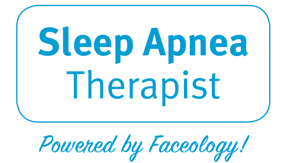In the first part of this series covering sleep hygiene, I looked at what sleep hygiene is and how it can be used to improve your sleep. I also went into the details of three sleep hygiene tips – being careful with your caffeine intake, avoiding electronic devices and gadgets before bed, and the importance of setting up a regular sleep routine.
As promised, here are three more tips that should be part of any sleep hygiene practice. And it really is a practice – the quality of your sleep is so important!
It needs to be treated as a priority, not an afterthought. The more effort you put into getting the best possible night’s sleep, the better you will sleep, which means you’ll notice benefits, both mentally and physically.
Three More Sleep Hygiene Tips
4. Exercise Regularly
Regular exercise is a good idea even if it didn’t affect our sleep. Being fit and active helps to reduce stress, and allows us to have the best possible quality of life.
But it’s also a great way to improve your sleep. We all know that feeling of dropping off into a great night’s sleep after a seriously active day – perhaps following a long hike, or after a hectic day playing with the kids – the end result is a pleasantly fatigued state that usually translates into deep and restful sleep.

You don’t want to overdo things, and you don’t want to exercise too late in the day because that can make it harder to sleep. But the right amount of exercise on a regular basis will have a noticeable impact on your sleep.
How much exercise do you need? Well, a study in a journal called Mental Health and Physical Activity looked at a sample of over 2,600 men and women, ages 18-85, and found that 150 minutes of moderate to vigorous activity a week provided a 65 percent improvement in sleep quality. That might sound like a lot of work but that’s only a 30 minute walk three times a week, with a couple of longer walks on the weekend. Throw in any sports or activities that you like to do from running, yoga or swimming to cycling or working out, and you’ll get to 150 minutes easily.
If your exercise routine isn’t what it should be, then a little more attention in this area might show big dividends when it comes to closing your eyes for the night. It’ll pay off in other ways too.
5. Sleep In A Dark Room
There’s a big difference in sleep quality when you sleep in a dark room instead of one where there’s a lot of light. Too much light during the night can disrupt your sleep by affecting your circadian rhythm, and a blast of sunlight too early in the morning is likely to wake you up before you’d normally start getting ready to get out of bed.

I usually notice this when I travel and end up staying in a hotel or AirBnB room that has thin curtains or blinds. As much as I try to sleep in until my alarm goes off, I inevitably wake up as soon as there’s enough light shining in to trick my body.
Thick, heavy curtains are the best way to ensure that you have control over the light in your bedroom but if this isn’t possible due to home décor or travel, then a sleep mask can be very handy. Also, as mentioned in Part One of this series, don’t stare at your phone or tablet until the minute you decide to go to sleep – that light can also have a major effect on your restfulness.
6. Sleep In A Quiet Room
When it comes to sleep, silence is golden, so try to get your rest in a room that’s silent or at least pretty quiet.
Noise can make it tough to fall asleep, and it doesn’t have to be all that loud either. Anything that catches your attention can keep you awake – a dripping tap, a snoring partner or the sound of cars on the road outside. Loud noises will of course wake you up, and if that happens at the wrong time during the night, it can be hard to get back to sleep.
There are a number of options to try. The first step is to try and reduce the noise where you can – get the tap repaired for example. If your partner snores, that’s a warning sign pointing to potential sleep and health problems, so that’s worth checking out!
Heavy curtains can cut down on outside noise, while also helping to control the light levels. If you can’t control all the noise, then earplugs can be a great solution – I use them often when I’m traveling. Another option is to use some kind of “white noise”. For example, a fan running in the background can be very effective at reducing low level but distracting background noise.
I hope these tips help you find your way to feeling refreshed and amazing every morning. If you’ve got any questions, or would like me to cover any specific topics in this blog, please leave a comment below or drop me a note here.

Pingback: Sleep Apnea and Weight Gain - Sleep Apnea Therapist